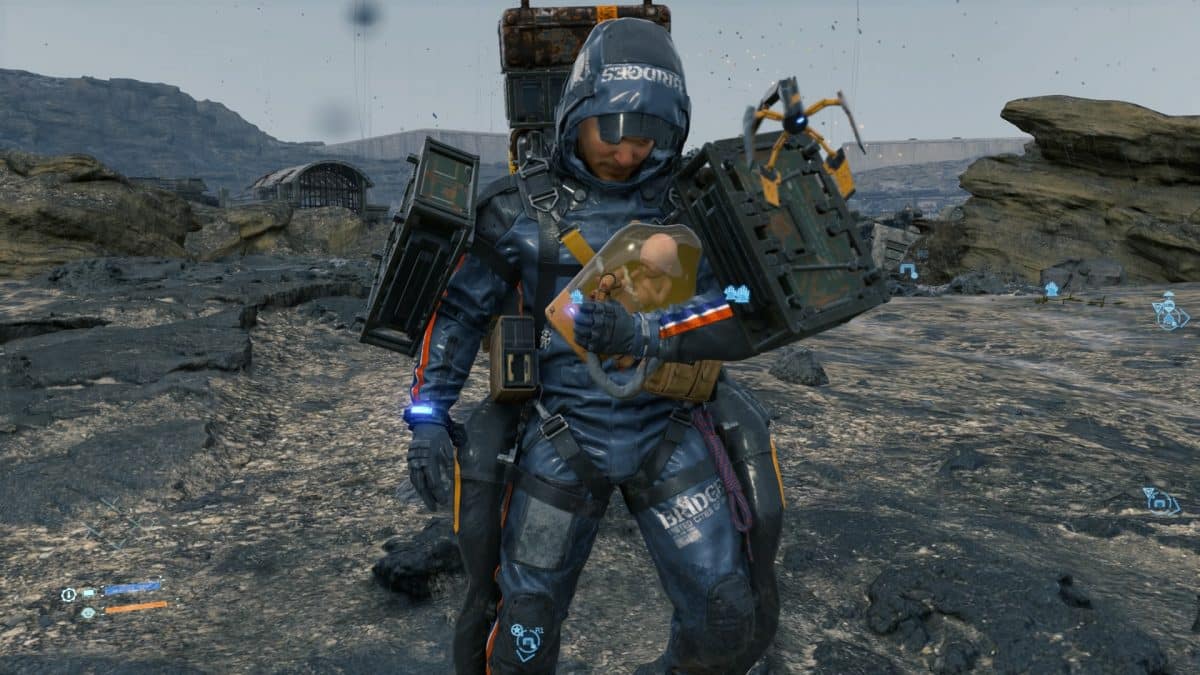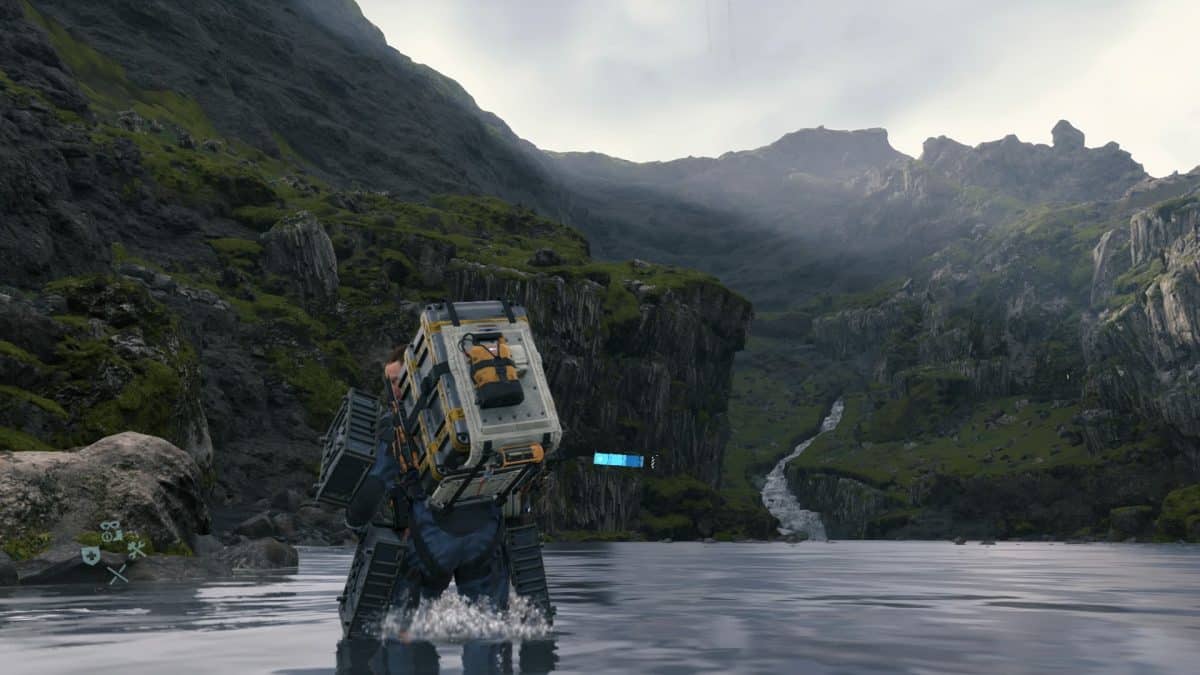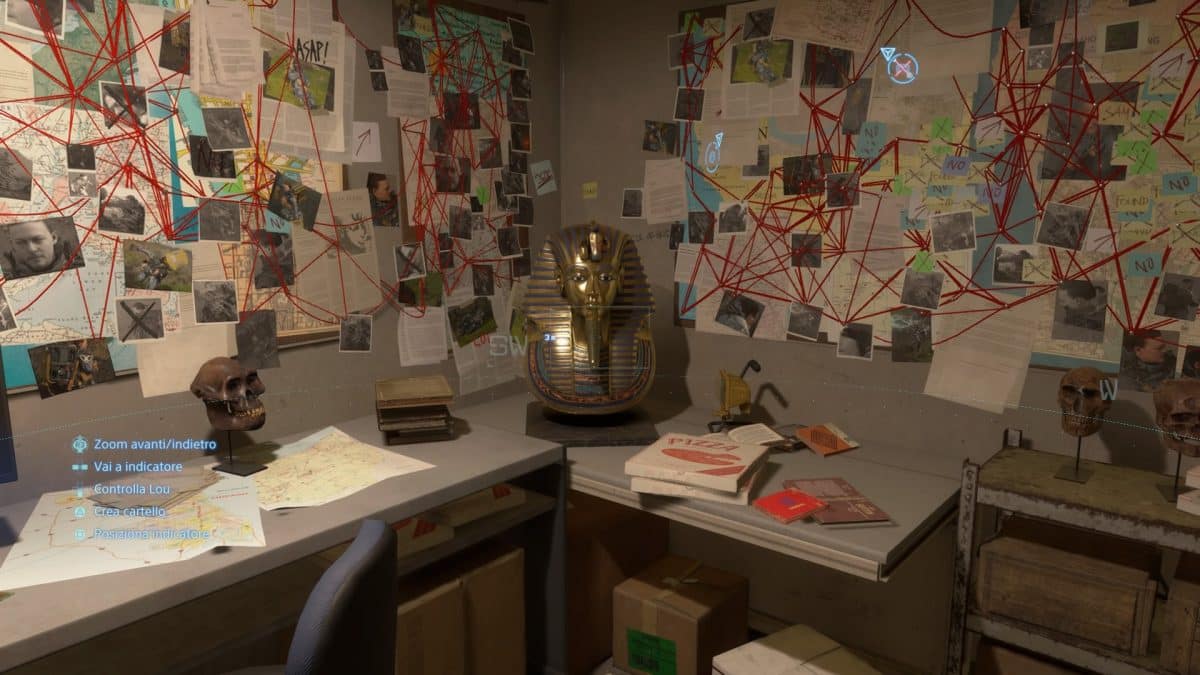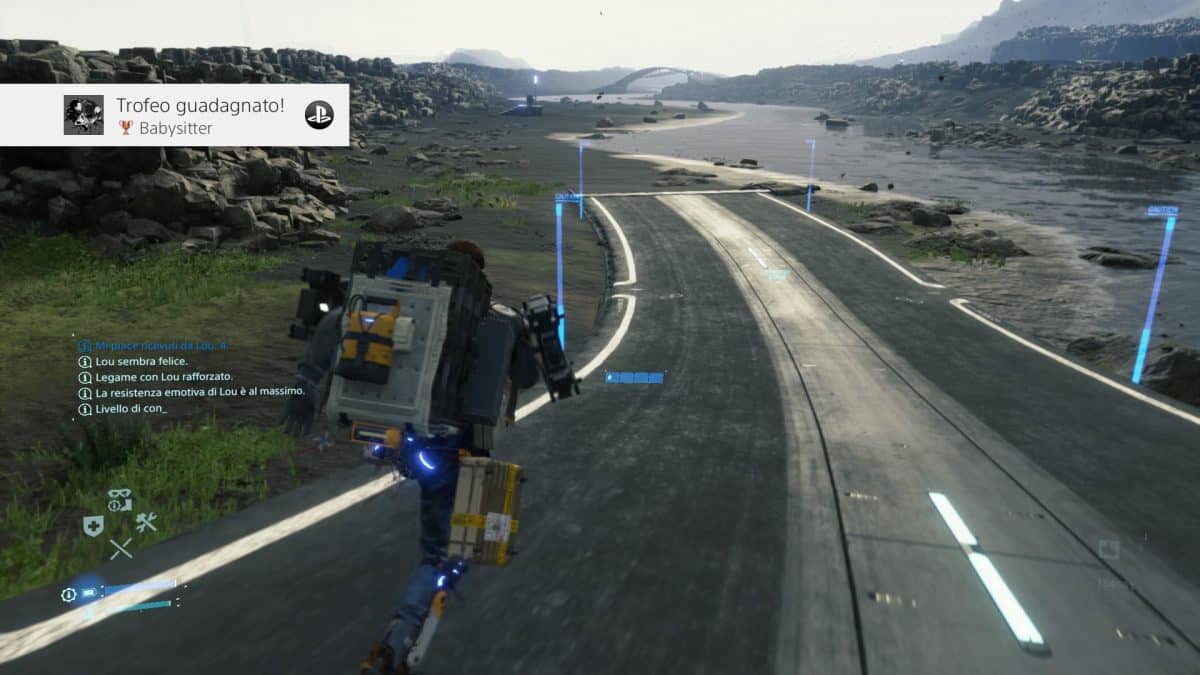My Personal Thoughts on Death Stranding

DEATH STRANDING™_20191108210551
What a difficult article to write, this is! After years of waiting, preceded by a painfull “divorce” between Kojima Production and Konami, the latest game from Master Hideo Kojima hit our consoles as a storm. As always, after a long period of cryptic messages from the author, we are facing a title that you either love or hate. Kojima has millions of fans around the world (and I surely am one of them), yet he often divides the critics since his particular vision of the world (and, subsequently of the gaming world) goes off the beaten paths followed by the mass.
As incredible as it may seem, Death Stranding is not considered by many an absolute masterpiece: a quick trip over the internet will reveal that different people awarded this game with scores that range from 10 down to 6… is the truth in the middle, as often people love to say? I personally don’t think so. Let’s discover why…
The game is set in the United States after an extinction-level event, renominated Death Stranding, hit the World causing destructive creatures from a realm between life and death to begin roaming the Earth. Your avatar is Sam Porter Bridges (Norman Reedus), and your main mission is to deliver supplies to the fractured and isolated colonies that remain in order to support them and, most notably, to convince them to recreate civilization by reconnecting to a wireless communications network, called Chiral Network. According to the dying President Bridget Strand (Lindsay Wagner), reconnecting the colonies is the only way to create the UCAs (United Cities of America) and, in the end, rebuild the United States. Despite being Bridget’s adoptive child and having a strong connection with his stepsister Amelie (again, a young version of Lindsay Wagner), Sam has no interest in this endeavor, even though he will soon have to embark in this journey.
The entire game revolves around going to a delivery center, getting your cargo, traveling across the land (often on foot) and delivering the cargo to its destination. For this reason, certain critics out there defined this game just as a simple, boring and annoying walking simulator.
Let’s continue a little bit forward …
The cataclysmic event caused “Beached Things” (“BTs“) to invade the land. These BTs are invisible creatures originating from the “Beach”, possibly a land set on a different astral plane linked to the afterlife. They infest only certain parts of the land, but pose a great danger to porters since when engaged they cause death and, after having consumed the dead by necrosis, they cause violent explosions known as “voidouts“. Also, they produce a rain called “Timefall” that rapidly ages and deteriorates whatever it hits (humans included). So, after the free exploration of an open world, this fact also adds the challenge of stealth and combat. Well beyond a “simple” walking simulator IMHO.
But it’s not over yet…
Sam works, as other porters, for a company called Bridges. This company is not the only one, having a “competitor” in the “Fragile” (whose leader is impersonated by Léa Seydoux). These porters can confront the BTs, but they also have to face bandits (who developed an obsession for cargo and will attack you to steal your cargo and deliver it themselves) and terrorists (who simply want to maintain the chaos to rule what remains of the world). During the long years after the Death Stranding, the government secretly developed a way to detect BTs by connecting the porters via a mental connection to a “Bridge Baby” (a “BB“), premature children extracted from a dead mother and reflecting a state between life and death. Porters carry a BB with them, which is stored in a pod simulating a mother’s womb. In addition, since Bridges was originally run by Bridget Strand, porters also carry out governmental functions for the UCAs. In the long run, Sam will develop a strong connection with his BB, and he will start to protect it like a father would do, not only from the BTs but also from an apparent threat posed by Clifford Unger (Mads Mikkelsen), a SpecOps retired commander who worked for Bridges and died in mysterious circumstances. How’s that for a walking simulator?
Furthermore…
Things are not always what they seem, and the story soon revolves around a much greater and darker plot. To reach the end you’ll need all the help other people can give you and, even though it won’t be simple, a full cast composed by Guillermo del Toro, Tommie Earl Jenkins, Troy Baker, Margaret Qualley, Nicolas Winding Refn and the already mentioned Léa Seydoux will be there for you. So… is there still someone out there that believes this game is a simple walking simulator? To these guys I would reply with the tale from Hans Christian Andersen “The Emperor’s New Clothes“ (I got the idea from another article writer, I must admit): yes, this game is all about completing tasks from point A to point B, with some action in between. Exactly like the Emperor’s new clothes, where people pretended to see things that weren’t there (or, rather, pretended not to admit that the Emperor was indeed naked), going from A to B is the nature of EVERY game of this kind: Kojima just took away all the rest to concentrate on the real thing, something that is very simple and ingenious at the same time.
Despite all of this, it is often said that the journey is more important than the destination, but I can assure you that reaching that destination after having crossed a land full of BTs with extreme atmospheric conditions, holding you BB with you and with your cargo still in good conditions, is something special that I never felt before.
Yet, as much as I loved playing and completing this game, I won’t give it a score today. After almost 70 hours spent in connecting an entire Nation, I believe the most important thing is to play Death Stranding by yourself and experience everything it has to give you. The reason why I won’t give it a score is because I think it’s still too early to do it. When Metal Gear came out, critics used to define it an action-adventure, since the stealth game was still non-existent as a genre. I believe it is the same here: Death Stranding is from a certain point a view a game like many others if taken to its bare essential yet, from another point of view, it is something never-before-seen, the progenitor of a brand new genre. Awarding a score would be comparing it to something else and I don’t personally think it’s fair. Not yet, at least.
What else can I say, before closing this article? Maybe that technically-wise we are close to perfection? That the graphic is simple but at the same time maybe the most beautiful I have ever seen? That the storyline, although difficult to understand, is very deep and compelling? That the acting is nothing less than perfect, and so is the dubbing? That the music score is often non-present (a precise choice) and when it turns on it is always at the right time and with the right mood? That the game, despite being a single-player experience, sports an asynchronous multiplayer feature that allows you to exchange cargo with other human players and let them complete some of your orders and vice versa?
Actually, as Mr. Kojima stated, this latter is the true meaning of the game: “the true importance of forging connections with others”, referring to the player’s goal of “reconnecting” an isolated and fractured society, to bridge its divides, and to “create new bonds or ‘Strands’ with other players around the globe.” As a final note, the game was made possible thanks to the collaboration with Guerrilla Games (KillZone, Horizon) which supplied their Decima as the game engine. In its debut week, Death Stranding was the best-selling physical game in Japan, with Famitsu reporting that the game had sold 185,909 copies. This made it the most successful debut for a new intellectual property in Japan for the current generation of consoles, overtaking previous record holder Judgment. [source: Wikipedia]
Thank you for reading, my fellows. I’ll be waiting for you on the Beach …
Follow Us... Inspire Us To Get Better... Keep The Flame Alive



























Hah..blimey ?.
You did it, a monster task. Well done article too.
Nice way to minimize spoilers too 🙂
Thank you
Oh, the evaluation of this game was very divided into pros and cons.
I think it’s a very challenging direction.
I felt his identity when Hideo Kojima made this work as his first work after independence.
You seem to have enjoyed this to the fullest, don’t you?
I felt respect for this work from your review. I think it’s very precious for creators. ^^